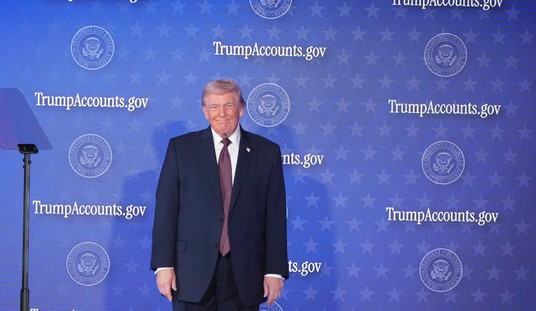The New Year is off to a great start thanks to the historic tax reform bill President Trump signed into law in December. Tax reform will spur economic growth, make it easier for businesses to compete, and create new, good paying jobs – all while putting more money into the pockets of middle class taxpayers. Unfortunately, they may need it as the middle class could be hit with an unwelcomed new tax on washing machines if one company gets their way.
Back in October, the Department of Commerce released a report that stated that foreign direct investment (FDI) strengthens America’s high tech competitiveness, finding that nearly 44 percent of all FDI in the United States is invested in high-tech industries. The report also found that U.S. affiliates of foreign-owned firms typically offer higher wages compared to domestic firms.
Further, U.S. affiliates of foreign-owned firms in the high-tech sector also spend nearly $42 billion on research and development (R&D). In 2015 alone, they also contributed $154 billion towards U.S. goods exports and more than $373 billion towards value-added activities.
In short, FDI in the tech sector has made massive contributions to the U.S. economy. Sounds great, right? Well, yes, of course, but not to everyone as appliance kingpin Whirlpool is hoping to bring new manufacturing and R&D investments to a screeching halt to pad its bottom line.
Whirlpool has called on the federal government to step in and give the company a competitive advantage over rival washing machine manufacturers, Samsung and LG. Whirlpool’s petition relies on an obscure trade law, Section 201 of the Trade Act of 1974, which has only been used once in the past thirty years. Whirlpool alleges that they suffered financial injury so great that the federal government must take action to “safeguard” it as a domestic industry working through the International Trade Commission (ITC). The ITC has recommended to the Trump administration to follow through on this crony capitalist request, putting a great deal of future FDI at risk.
Recommended
If the Trump administration is serious about ending taxpayer-funded corporate bailouts and draining the D.C. swamp, telling Whirlpool to compete and fight its own marketplace battles, as other companies have to do, is a must.
If the words of Secretary of Commerce Wilbur Ross are to be taken at face value, it is easy to see that appeasing Whirlpool really isn’t the right move. Secretary Ross stated recently the U.S. is on a path to trade policy “that levels the playing field and doesn’t disadvantage U.S. business and workers.”
“The key words [that define our trade policy] are free, fair, and reciprocal,” according to Secretary Ross. The administration should honor those words in their actions – not play to the hand of crony capitalists – and categorically deny Whirlpool’s petition.
Free, fair and reciprocal means encouraging market competition and welcoming FDI to reap the economic benefits that will flow through to consumers and taxpayers. Welcoming investments in America does not mean allowing companies to abuse U.S. policies, but this case has no merit.
The companies under fire in the Whirlpool petition, Samsung and LG, have dedicated themselves to opening integrated production facilities in South Carolina and Tennessee. They are committed to real, long-standing FDI.
Samsung has a proven record of investing in America. With its flagship operation in Austin, Texas, Samsung has invested billions in the Austin area over the last decade. And their new South Carolina facility revives a formerly abandoned manufacturing plant and puts it back online – the exact type of investment and resurgence in U.S. manufacturing that should be embraced, not discouraged to help one company profit.
As the Taxpayers Protection Alliance and 13 additional free market organizations recently warned, protectionist measures, like that of the Whirlpool petition, rarely save jobs, raise tax revenues or preserve competition. A short-sighted decision by the Trump administration in this case could have long-lasting effects and bring a slew of unintended consequences that will negatively impact free trade and countless industries for years to come.
Growing out the economy and creating good paying American jobs depends upon on massive investments of private capital. LG and Samsung should be allowed invest in America, enhance local economies, and create thousands of jobs. President Trump can still do the right thing and stand with U.S. taxpayers and against crony capitalists to preserve the livelihood of American workers and economic growth of the nation. The time to act is now. Let’s send a message that America is open for business.

























Join the conversation as a VIP Member